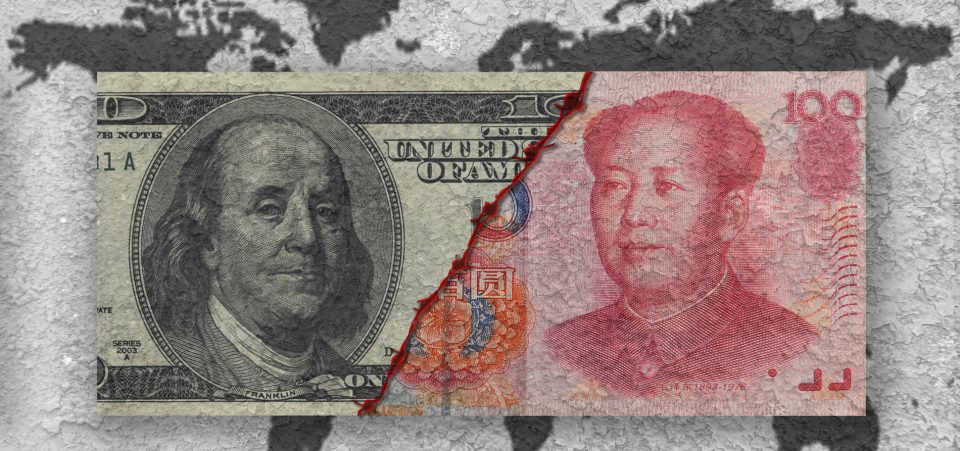Don’t Rule Out a U.S. Dollar Collapse Just Yet, Yuan Could Be the Reason
Read this very carefully: a U.S. dollar collapse could become reality much sooner than expected. Don’t ignore this, because a plunging dollar could have severe consequences.
You see, the dollar became what it is today because it’s deemed the global currency. Global trade happens with the greenback, international business deals are done with the dollar, commodities are priced in the dollar, and central banks hold it in their reserves.
Why did we do this? For simplicity. It made sense; have everything priced in one currency so it’s easy. This gave the dollar a lot of respect around the world.
But now there’s a rival: the Chinese yuan.
Consider that China is the second-biggest economy in the world; it’s quickly approaching the size of the U.S. economy. What’s more, it does a lot of business with major economic hubs of the global economy.
With this, don’t you think China would want its currency, the yuan, to be as usable as the dollar around the world? There’s really no rocket science behind this: yes, it would.
China is making solid strides to make the yuan a global currency like the dollar.
The Big Question: How Does a Currency Become Popular?
The first thing that needs to be done is for China to start paying in yuan for things that the country buys.
China is doing this now. Oil, for the longest time, was only valued in U.S. dollar terms. But now, China is trying to change this.
The second-largest economy in the world is also the second-largest oil consumer, as well as the biggest importer of crude oil. As such, China wants oil to be priced in yuan, not the dollar. As early as the second half of 2018, China could be launching a pilot program in which payment for oil will be done in the yuan. (Source: “Exclusive: China taking first steps to pay for oil in yuan this year – sources,” Reuters, March 29, 2018.)
Beyond this, the other way China is making sure the currency is used around the world is by making massive investments using the yuan. The country has built the Asian Development Bank, which is similar to the International Monetary Fund (IMF). This could also normalize the yuan globally.
Central banks are starting to buy the yuan for their reserves as well, and they are buying a lot. Between the fourth quarters of 2016 and 2017, central banks’ Chinese yuan holdings increased by over 35%. (Source: “Currency Composition of Official Foreign Exchange Reserves (COFER),” International Monetary Fund, last accessed May 4, 2018.)
U.S. Dollar Outlook: It’s Gloomy
Dear reader, yuan dominance is growing very quickly around the globe, and no matter what anyone says, it’s a direct threat to the U.S. dollar.
I believe that, as the yuan makes a move toward becoming a major currency, the dollar will lose its value significantly. The only thing holding up the dollar is the trust in the currency. Its fundamentals are not so great.
As the yuan emerges, don’t be shocked if countries, central banks, and businesses adapt to it.
Now the big question: “What happens if the dollar collapses?”
Remember, since the dollar is a global currency, its collapse could lead to the collapse of the global financial system and trade, not to mention a lot of uncertainty.
That said, I suggest keeping a close eye on gold.






